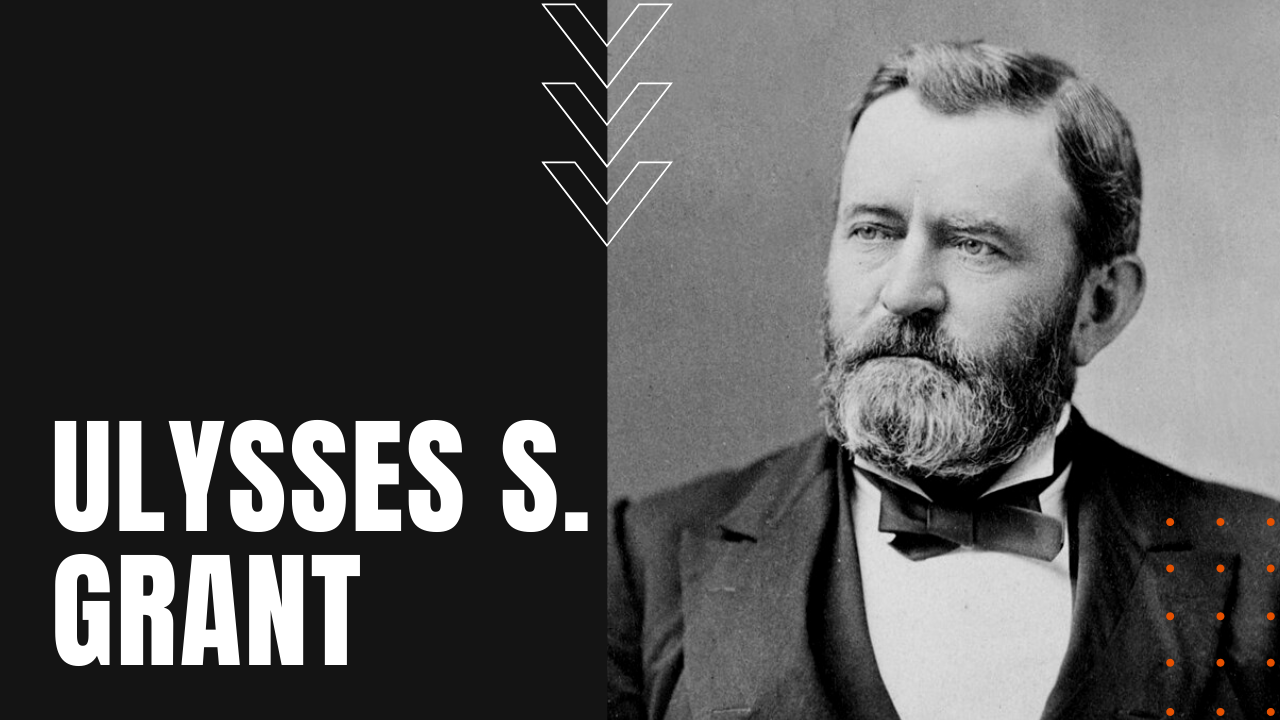Ulysses S. Grant Biography: From Civil War Hero to Two-Term President

Born in 1822 Ohio, Ulysses S. Grant graduated 21st in his class from West Point, serving with distinction during the Mexican-American War.
In 1848, he married Julia Dent, and after the birth of their four children, in 1854, Grant resigned his commission to live in relative poverty with his family. He re-enlisted after the Civil War broke out in 1861, rising to prominence after several early Union victories in the Western Theater. In 1863, he led the Vicksburg Campaign, which gained control of the Mississippi River, followed by the Chattanooga Campaign, which led to his promotion to lieutenant general by President Abraham Lincoln.
Ulysses S. Grant vs. Robert E. Lee
Over the next thirteen months, Grant fought Confederate general Robert E. Lee during the high-casualty Overland Campaign and at Petersburg, and when Lee surrendered to Grant at Appomattox Courthouse on April 9th, 1865, one week later, President Lincoln was assassinated by famed stage actor John Wilkes Booth at Washington’s Ford’s Theater.
When Andrew Johnson succeeded Lincoln into the White House, he promoted Grant to General of the Army in 1866. After openly departing with Johnson over the president’s hands-off enforcement of the Reconstruction Acts designed to improve civil rights for freed African Americans, Grant’s status as a Civil War hero propelled him into the White House in 1868, where he stabilized the nation’s post-war economy, supported ratification of the 15th Amendment, while prosecuting Ku Klux Klan.
In 1871, Grant formed the Civil Service Commission, which was created to select employees for federal jobs on merit rather than political relationships. In the presidential election of 1872, Liberal Republicans and Democrats united behind Grant against presidential candidate Horace Greeley, winning re-election to a second term in office.
During his final term, Grant would oversee the Great Sioux War, while his foreign policy saw the peaceful resolution of the Alabama claims against Great Britain, although his attempted annexation of his prized Dominican Republic were rejected by the Senate.
Grant’s Retirement, Autobiography and Death
In his retirement, Grant was the first president to circumnavigate the world, where he dined with Queen Victoria and met many prominent foreign leaders. After his failed 1880 bid to obtain the Republican presidential nomination for a third term in office, Grant suffered a string of severe financial reversals, and after his diagnosis of throat cancer, he wrote his memoirs less than a month before his death in July of 1885, which proved to be a major critical and financial success, enjoyed only by his beloved Julia.
